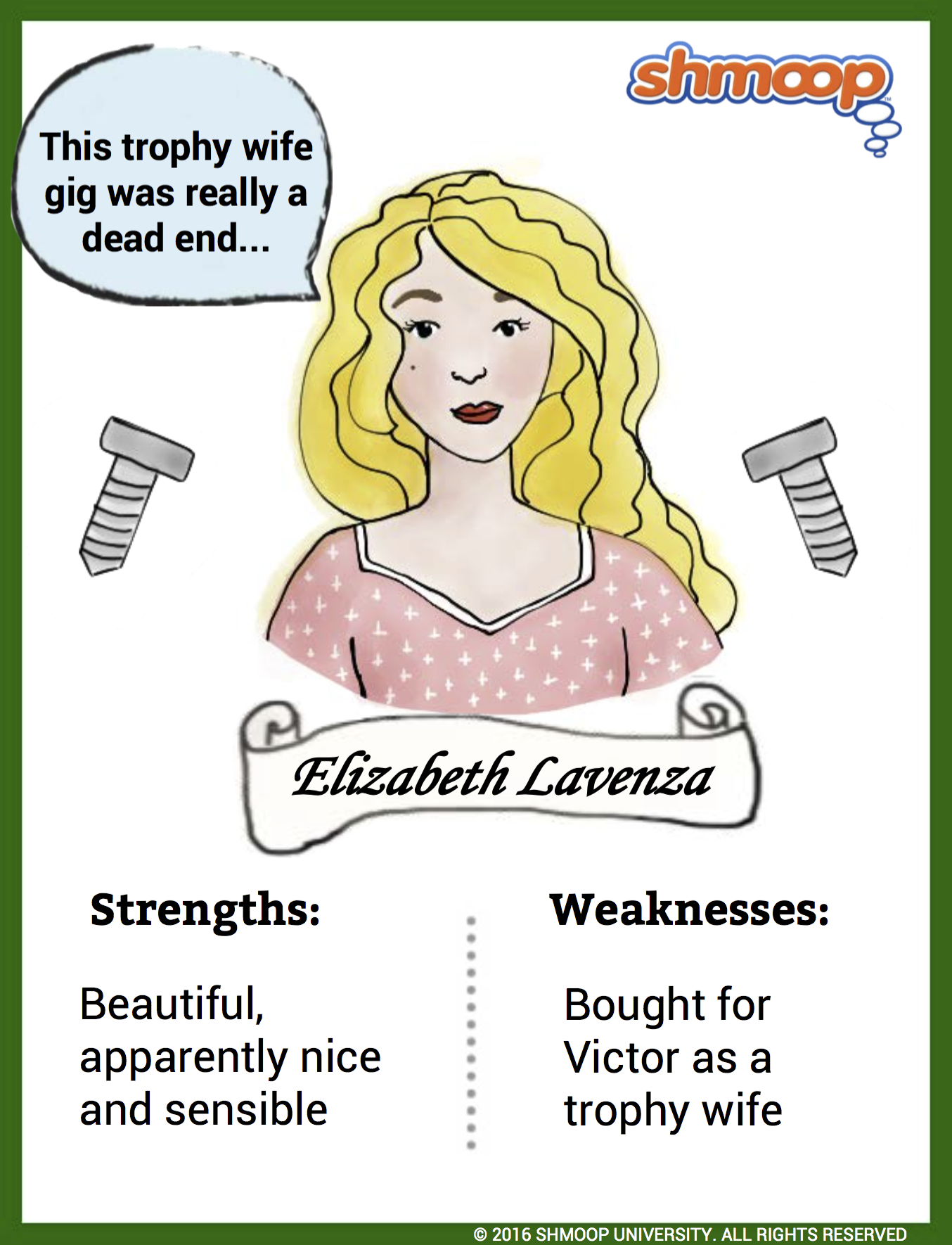Character Analysis

(Click the character infographic to download.)
Caroline Frankenstein adopts Elizabeth when she's five from a family of poor Italian people (it's okay, though: she's really the daughter of an Italian nobleman). Almost all we know about her is her looks: she's "a creature who seemed to shed radiance from her looks" (1.6); she's "thin and very fair. Her hair was the brightest living gold … her blue eyes cloudless" (1.6); when she grows up, she has "loveliness surpassing the beauty of her childish years" (7.45).
Oh, sure, she's also full of "sensibility and intellect" (7.45), "soft looks of compassion," and "a gentle voice" (22.20, 21), but we get the feeling that those are secondary considerations. To Victor, she's a beautiful piece of property. His mother presents her as a "pretty present" (1.7), and he "interpreted her words literally" (1.7). He says some things about "dying to make her happy" (22.17) and "paradisiacal dreams of love and joy" (22.17), but it's hard to take them too seriously. Elizabeth is a tool—she's "bought" by his mother and used by Mary Shelley to make a point.
We tried, but we just couldn't get too upset about her death. And, somehow, we suspect Victor wasn't all that upset, either.